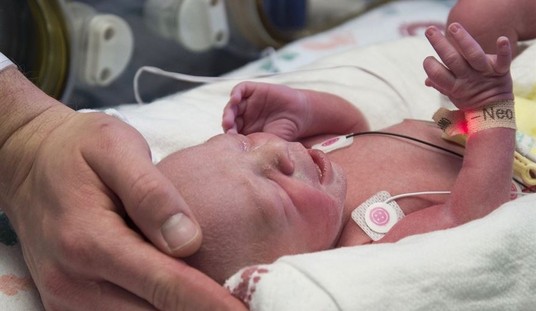The news is full these days of stories about how everyone who knew the latest jihad attackers in New York and Minnesota is shocked — shocked! — that he could have done such a thing. If any of this shock is sincere, it is based on the difference between how the jihadi behaved before and during his jihad.
But that very difference may be why they opted to commit jihad violence: to redeem themselves after lives of sin and lack of interest in Islam.
Call it “Redemptive Jihad.”
It’s akin to what used to be called “Going Postal,” but with the supposition of a heavenly reward. This is Going Postal, Islamic style.
The New York Times reported Monday on Dahir Adan, who stabbed ten people at a mall in St. Cloud, Minnesota, on Saturday while making “references to Allah”:
[Adan] seemed like a model of assimilation, not a violent jihadist, people who knew him and his family said. The son of Somali refugees, he lived in the United States most of his life, did well in school, played sports, worked as a security guard and took classes at a local college.
Jama Alimad, a friend of the family, said:
He was a normal American kid. I can’t see anyone more assimilated than that guy.
A friend recalled:
He was such a sweet humble guy, and that’s still how I see him.
He was, said the Times, a “quiet, mild-mannered youth” who “was not especially religious, though also not an atheist.” However, there were some visible — but downplayed – problems. Adan seems to have dropped out of college, likely because of academic problems, and his brother is facing state drug charges.
The same was said about New York/New Jersey jihad bomber Ahmad Khan Rahami. He ran a chicken restaurant in New Jersey; the Times tells us of a friend’s recollection of him:
He gave me free chicken. He was always the most friendly man you ever met.
Also, according to the Times:
[H]is other known obsession was souped-up Honda Civics that he liked to race … Neighbors described him as a friendly car enthusiast and were surprised by the arrest … He used to wear Western-style clothing, and customers said he gave little indication of his heritage.
…
[Rahami] had rifts with his father, who was more religious and traditional … His father was especially displeased when Mr. Rahami had a daughter with a high school girlfriend, according to friends.
Then, as with Adan, there was a clear change:
In recent years, though, some friends noticed a marked change in his personality and religious devotion after what they believed was a trip to Afghanistan, where he and his relatives are from.
…
He grew a beard and exchanged his typical wardrobe of T-shirts and sweatpants for traditional Muslim garb. He began to pray in the back of the store. His previous genial bearing turned more stern.
There is the likely key as to why both he and Dahir Adan, mild-mannered, friendly guys, embarked on the path to jihad: they were trying to make up for previous activity regarded as sinful in an Islamic context.
Those Islamic sins include “assimilation” into Western mores (which hardline Muslims consider sinful), or simply a lack of interest in Islam.
And, jihad provides divine pardon for such sins.
A hadith — a report of Muhammad’s words that Muslims consider authoritative — depicts a Muslim asking Muhammad:
Instruct me as to such a deed as equals Jihad (in reward).
Muhammad replied:
I do not find such a deed. (Bukhari 4.52.44)
The Qur’an teaches that Allah will place a Muslim’s good deeds on one scale and bad deeds on the other, and send them to Paradise or hell depending on which scale weighs more (cf. 21:47).
A Muslim who is worried about his eternal destiny can decisively tip the scales in his favor by waging jihad, the deed that is greater than all others.
He can seize the Qur’an’s promise of Paradise for those who “kill and are killed” for Allah (9:111). This will not only make up for his sins or indifference, but will make him a hero to numerous Muslims worldwide.
We have seen this again and again.
After jihad mass murderer Mohamed Lahouaiej Bouhlel drove a truck into a crowd in Nice, France, last July, murdering 84 people, Walid Hamou, a cousin of his wife, said:
Bouhlel was not religious. He did not go to the mosque, he did not pray, he did not observe Ramadan. He drank alcohol, ate pork and took drugs. This is all forbidden under Islam. He was not a Muslim, he was a s***. He beat his wife, my cousin, he was a nasty piece of work.
Does all that really mean that Bouhlel was not a Muslim? No. If he really did not attend mosque, did not pray, did not observe Ramadan, drank alcohol, ate pork and took drugs, all that means is that he was a bad Muslim.
He could at some point have awakened and thought: I’m headed for hell. What great deed can I perform that will outweigh all my evil deeds? The answer to that question, of course, was jihad, which according to Muhammad himself is the greatest of all deeds.
Further, that he beat his wife was hardly a sign that he was not a Muslim, since the Qur’an commands that women from whom men fear disobedience should be beaten (4:34).
Redemptive jihad. Jihad, says the Qur’an, will “heal the breasts of folk who are believers” (9:14). Commit jihad, and no more worrying about whether one will spend eternity in Paradise or hell.
The previously sinful or indifferent Muslim guarantees for himself a place in Paradise — and that, not the blood of his infidel victims, is all that matters.










Join the conversation as a VIP Member